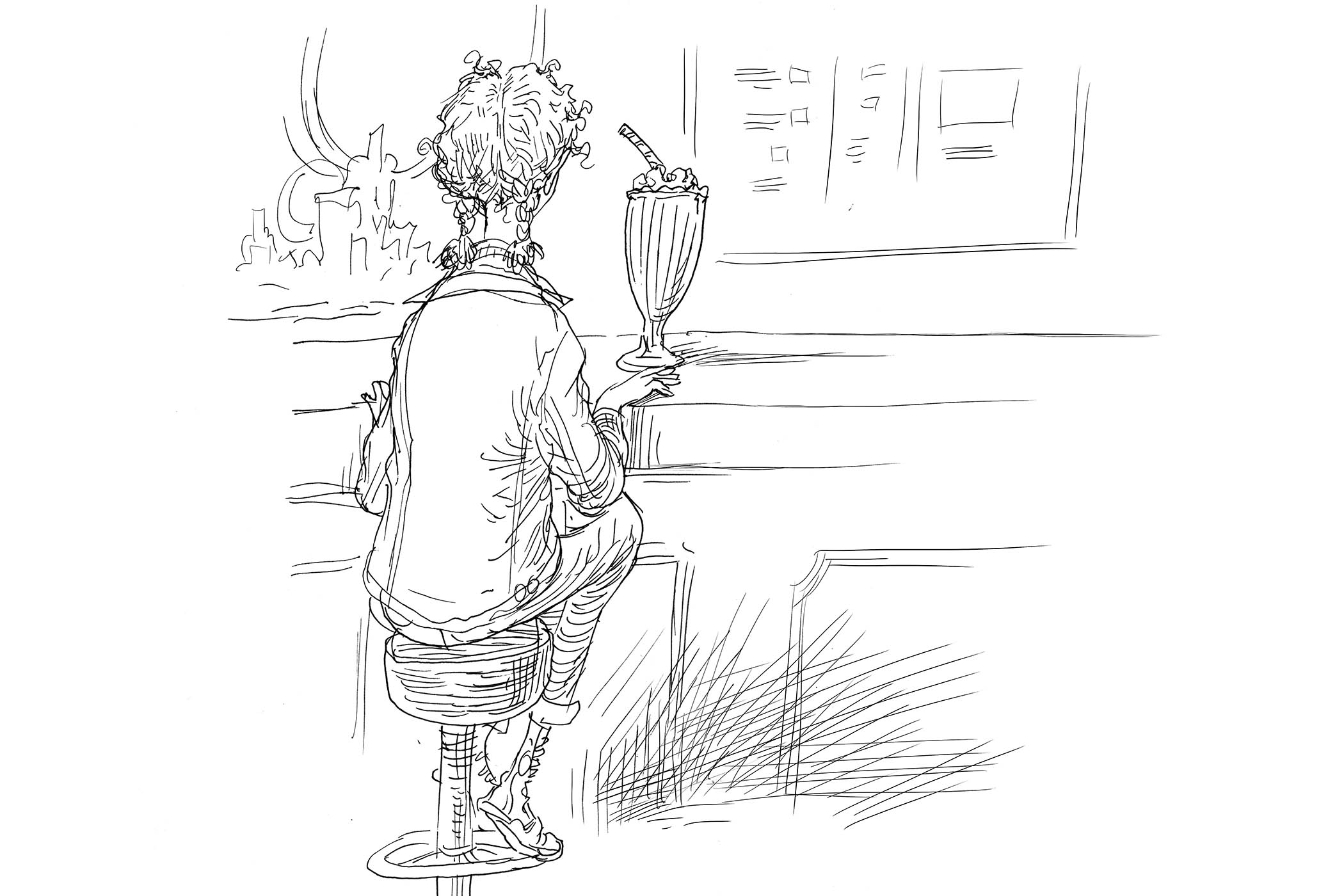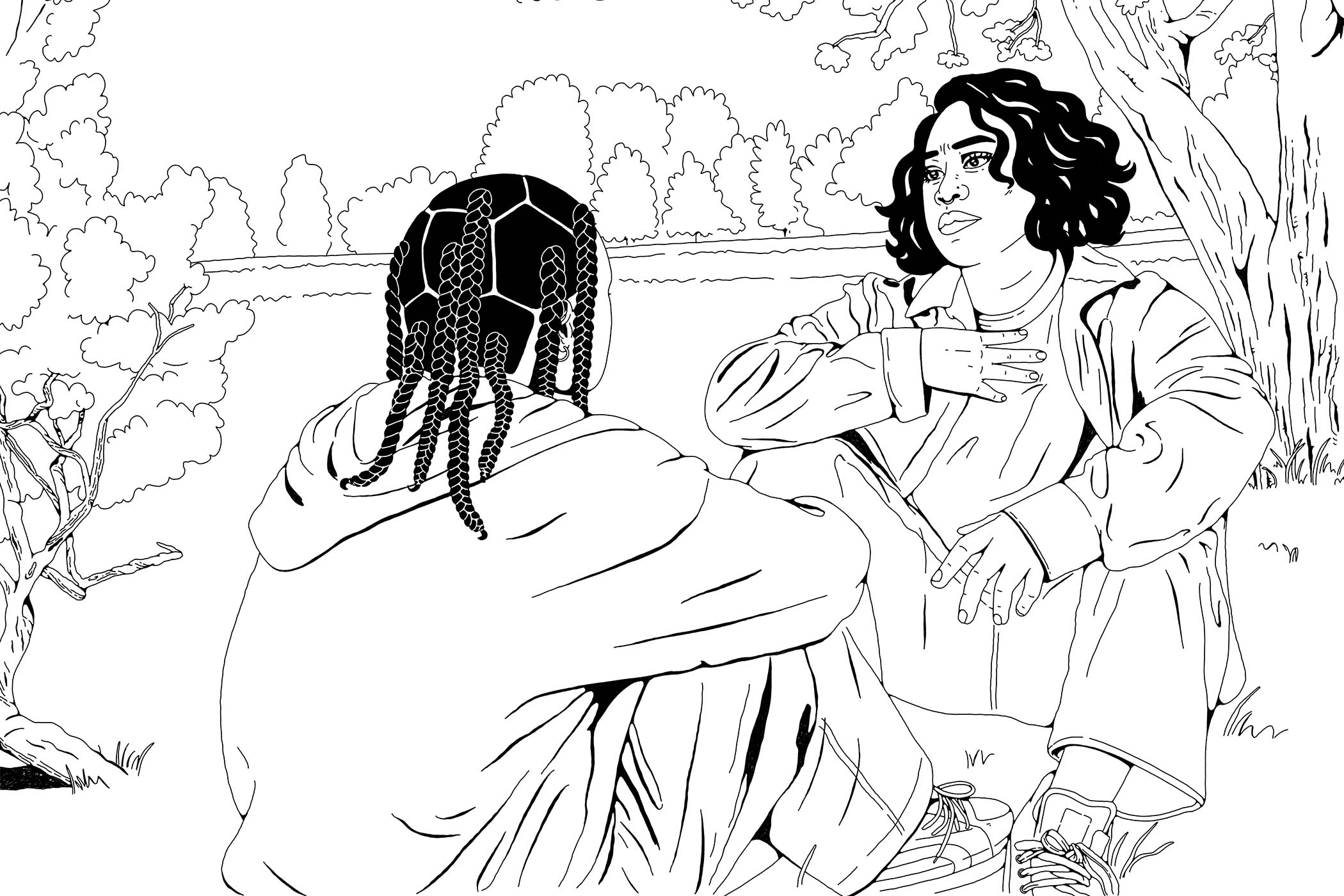Portrait by Sophia Evans
It’s 9.59pm, a minute before the winner of this year’s Booker prize is announced at a glittering ceremony in the City of London. David Szalay, one of the six shortlisted novelists, is calm, having persuaded himself it won’t be his name that is read out on stage. Among the five judges, he thinks some will be in favour of his novel Flesh, the rags-to-riches story of a migrant from post-communist Hungary, but some might take strongly against its adversarially blank prose. The same goes for Katie Kitamura’s experimental novel Audition, he suspects, and he feels all the judges are more likely to agree on Andrew Miller’s The Land in Winter, for Szalay, “a very beautifully written novel... a flawless piece of writing”, and the bookies’ favourite on prize day.
This, at least, was one of the scenarios running through his mind ahead of the announcement on Monday night, Szalay tells me two days after winning the £50,000 prize. His celebrations at his publisher’s afterparty in Soho were cut short by a cold, and he was in bed by around 12.30am, before having to suit up once more for a Tuesday date with the Queen as part of a post-Booker publicity bonanza.
Right now, over morning coffee in central London, he’s back in his more typical writer’s uniform of smart quarter-zip jumper, looking nonplussed as I ask how it feels to be the first of Granta’s best of young British novelists from the class of 2013 to win the Booker prize. It hadn’t occurred to him, he says: having left the UK more than 15 years ago (he moved to Hungary, his father’s birthplace, and now lives in Vienna), he doesn’t feel especially connected to any literary scene. With fans from Zadie Smith to Dua Lipa, who interviewed him on stage at the New York Public Library a couple of months ago, the success of his latest novel delights him, but it’s still a surprise. “It’s always hard to anticipate the response of readers, but with Flesh it was particularly hard,” says Szalay, 51. “The central character is quite opaque and the book doesn’t tell the reader how to read it.”
So much is omitted, leaving the reader to fill in the blanks as the narrative drops in on moments in the life of the protagonist, István, from an uneasy sexual encounter as a teenager on a Hungarian housing estate to his time as a high-net-worth property developer flying dangerously close to the sun among the English upper crust.
The result is a stylish page-turner in which even the punctuation is spare. I ask Szalay about one passage in which István, in the course of his ascent, is having room service in a penthouse suite in Munich, and when the waiter starts to unload his trolley, he says: “No it’s okay just leave it.” “You could put two commas in there,” Szalay says, “but it would take you away from István somehow – not having them just makes it somehow more immediate.” He almost deleted all the speech marks for the same reason, but didn’t want to look like a follower of literary fashion – or to make the book unnecessarily hard to read. “Things should always be as simple as possible,” he says. “That doesn't always mean easy, but if the reader has to work, it should be for a purpose. I lose patience with books quite easily, so I really appreciate it when the writer has made an effort to hold my interest; my part as a reader should be fun.”
Asked about the influences on Flesh during the post-prize press conference on Monday night, Szalay – fielding questions from reporters from Italy, Canada and China – said that there were lots but wasn’t able to name any. In fact he’s already namechecked several, including Virginia Woolf’s experimental novel Jacob’s Room, but it’s long been a source of speculation whether he had Stanley Kubrick’s film Barry Lyndon in mind when writing Flesh. Szalay says he has seen it – when he was about 20 – “and the rags-to-riches arc was an influence”. The novel Ultraluminous, by the American writer Katherine Faw, is another – a fragmentary testimony of a heroin-addicted call girl in New York City, both blank and vivid at once. I recently downloaded it after seeing Szalay’s recommendation and it’s among the best things I’ve read this year. A Toronto bookseller pressed it into Szalay’s hand in 2019 when he was on tour to promote a previous book, Turbulence. “I was completely gripped,” says Szalay. “It had that compulsive addictive quality that is fantastic [in a novel], and its style and method of portraying character definitely affected how I wrote Flesh.”
I’m worried. I have to preserve the sharpness, the appetite that I felt not winning last time
I’m worried. I have to preserve the sharpness, the appetite that I felt not winning last time
Szalay attributes his attraction to unsavoury subject matter to reading Martin Amis and John Updike in his teens. “Maybe I took from them the lesson that if you want to be a proper writer, you have to deal with the sordid. But I think it’s also that I’m always on my guard against dealing only with supposedly elevated subjects.”
Zadie Smith told BBC Radio 4’s A Good Read about her experience of reading the story of István’s life and then looking at London cab drivers and “the security guard at TK Maxx” in a different light. Do the terms of praise – which suggest that István isn’t only a class migrant in the novel, but in literary fiction full stop – make Szalay uneasy?
Szalay says he is delighted with that kind of response, which he has regularly had from readers ever since his 2009 debut, London and the South-East, drawn on his experience of working in telesales: “I remember a reviewer saying it made her look afresh at the people she was squashed in next to on the tube.” At the same time he’s aware of the irony that, as a privately educated Oxford graduate, he is seen as broadening literary fiction’s horizons. “I’m a middle-class guy. My own life bears almost no resemblance to István’s life, apart from the Hungarian-ness – although he’s properly Hungarian, and I’m only vaguely Hungarian through my dad. But I think any writing that produces a response that means somebody now looks at things with more interest – whatever the thing is – is good. If literary fiction is to thrive, it does have to get out.”
Newsletters
Choose the newsletters you want to receive
View more
For information about how The Observer protects your data, read our Privacy Policy
I put it to Szalay that if there really is a reading crisis – as some commentators and academics in Britain and the US have claimed – a novel like Flesh might be a way to address it. Szalay agrees vigorously, then catches himself. “That doesn’t sound very modest,” he laughs, “but for me that’s one of the positive things about this book.”
From weekly sales figures, I estimate Flesh had sold about 6,500 copies prior to Monday, from a print run Szalay reckons was between 20,000-30,000. Minutes before we meet, it’s announced in the trade press that Jonathan Cape will reprint 150,000 copies. I break the news to Szalay, who hadn’t yet heard: his delighted response puts me in mind of what he told me when we spoke in February, about how he reconciled himself to not winning in 2016 – for his novel All That Man Is – because it kept him hungry. “I’m worried,” he says now, not entirely joking. “I have to preserve the sharpness, the appetite that I felt not winning last time.”
And what about the cash? At the press conference, he shrugged when he was asked what he’d do with the Booker money: maybe he’d take a nice holiday, he said, before banking the rest of the cheque. I bring up his past life as a gambler. Szalay’s 2011 novel Spring was drawn in part on his experience of losing £25,000 – exactly half the Booker prize pot – through online betting while living in Brussels. “I’m just going to bet it all on one horse,” he jokes, adding that he no longer gambles “habitually”, but does like a punt on politics. “I’ve kept doing that because I seem to have quite a good track record. I had quite a big bet on Labour to win the last election, which I put on a year or two beforehand. Have a look, it’s quite a mainstream market,” he tells me.
And then he’s off, with no time for me to press him on who his money’s on right now. But just before Szalay leaves for his next step on the Booker publicity treadmill – which will most likely consume at least his next 12 months – I wonder if his curtailed celebrations on Monday mean there’s a bigger party to come. “The rest of my life,” he says.
Flesh by David Szalay is published by Vintage (£18.99). Order a copy from The Observer Shop for £16.14. Delivery charges may apply



